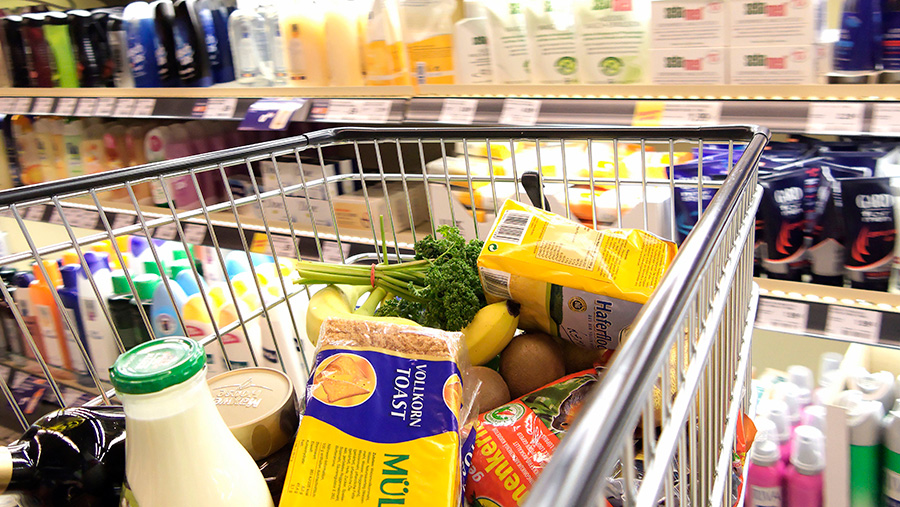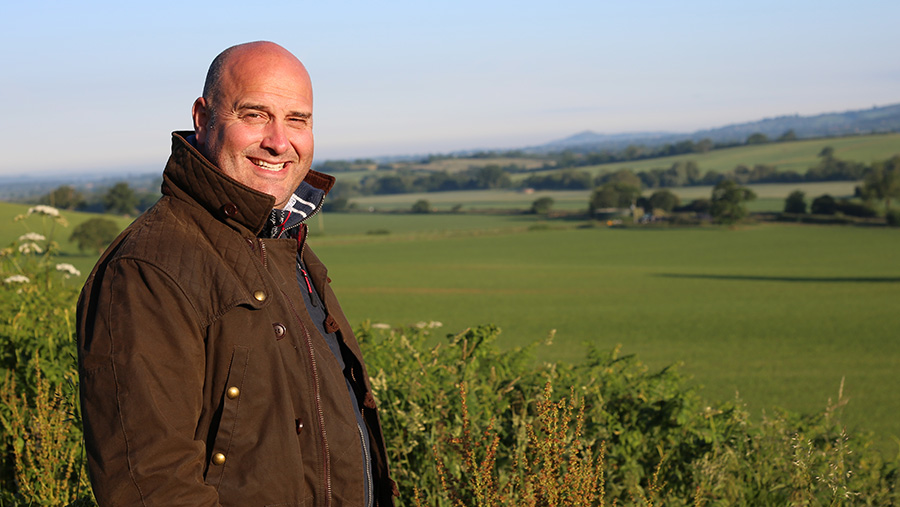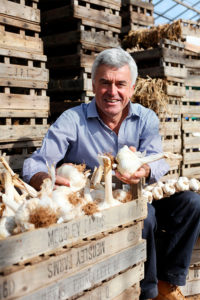Brexit: Farming exporters share their market worries
 © Paul Mayall/imageBROKER/REX Shutterstock
© Paul Mayall/imageBROKER/REX Shutterstock An exit from the EU is likely to have a big impact on trade – particularly for those farming businesses and sectors that rely heavily on exports to other member states.
The weak pound may have helped make UK exports more competitive on the continent, but so much uncertainty still exists around trading relationships – something which is unnerving for businesses with established and growing trade abroad.
But what do such farming businesses and promoters feel about the Brexit vote and how do they plan to move forwards from here?
See also: Read more from the EU referendum

Richard Clothier
Richard Clothier, managing director, Wyke Farms
“We were very disappointed about the [referendum] result as it puts uncertainty over our EU exports.
“However, the decision has been made and we have to move on and work to see this as an opportunity. We cannot afford the industry to indulge in a malaise and in fight – we leave that luxury to politicians.
“There will be, possibly, a short-term lift in commodities as the pound weakens. As an industry we must push these price increases through and get money back to dairy farmers at this critical time.
“This weakness has the potential to lift bottom milk prices by 3p/litre and maybe as much 5p/litre and we must try to deliver this for farmers.
“Currency weakness could be the lifeline that saves our industry, as currency is such a critical factor.
“We must charge our politicians with some key requirements. Firstly, government stability with the new PM guiding the direction as soon as possible – not in two or three months after a ‘holiday’. This is a crisis that needs managing now.
“Secondly, we need to maintain our free access to Europe, in return for allowing Ireland, Germany, France and Denmark access to our market.
“Thirdly, on top of that we have an opportunity to forge a deal with big markets for dairy products such as India, the US and the South American powerhouses.
“Politicians will need to deliver these things to convince doubters like myself that I was wrong to vote remain.”
Prys Morgan, head of operations Hybu Cig Cymru (Meat Promotion Wales)
“For the next two years, while negotiations continue over the terms of Britain’s relationship with the EU, trade will continue as before.
“There has been an impact on currency trading, which may have short-term effects on farmgate prices which are difficult to foresee.

Prys Morgan
“In the medium term, the crucial issues for the Welsh red meat industry include access to markets and the protected PGI [Protection Group International] status of Welsh Lamb and Welsh Beef.
“Exports are particularly important for the lamb industry in Wales.
“Hybu Cig Cymru [HCC] will be working with its current partners to maintain trading relationships within Europe, and continuing its activities in developing new overseas markets.
“However, much uncertainty remains on what terms of trade there will be between the UK and the EU, and what agreements on imports from the rest of the world into the UK, will be in force post-Brexit.
“HCC considers the status of PGI to be of enormous importance to the Welsh red meat industry, as it identifies the origin and unique qualities of Welsh Lamb and Welsh Beef.
“It is widely recognised across the EU and further afield and has been instrumental in granting access to new export markets.
“The European Commission’s PGI scheme is open to non-EU products. However, the process for ensuring that Welsh Lamb and Welsh Beef retain the PGI status is currently unclear.”
Colin Boswell, owner The Garlic Farm, Isle of Wight

Colin Boswell
“I have invested 40 years in understanding the European market and in our trading relationships, and on Friday morning I felt angry – that it had been all for nothing.
“We are planning on how to take the business forward in the light of Brexit.
“It is a challenge but we shall get through it.
“The EU market is the easiest market for us to supply but there are other options.
“Our customers and associates in the EU question the sanity behind what has happened.”
Natasha Edwards, managing director, The Garlic Farm, Isle of Wight

Natasha Edwards
“Imports and exports are both relevant to the business; we import some of our ingredients and export our garlic products. Market fluctuations and exchange rates have a large effect on our business and this new level of uncertainty is unnerving.
“The EU market and its customers are a potential area of growth (for the business), but the fact we don’t know what will happen next is the biggest threat for our trade relationships.
“We have spent decades sharing knowledge and making closer ties with the garlic market in the EU, and we want to continue to enhance this link. As a result, any changes in our relationship with Europe could complicate our business.
“For now we are remaining hopeful and it is very much business as usual.”
